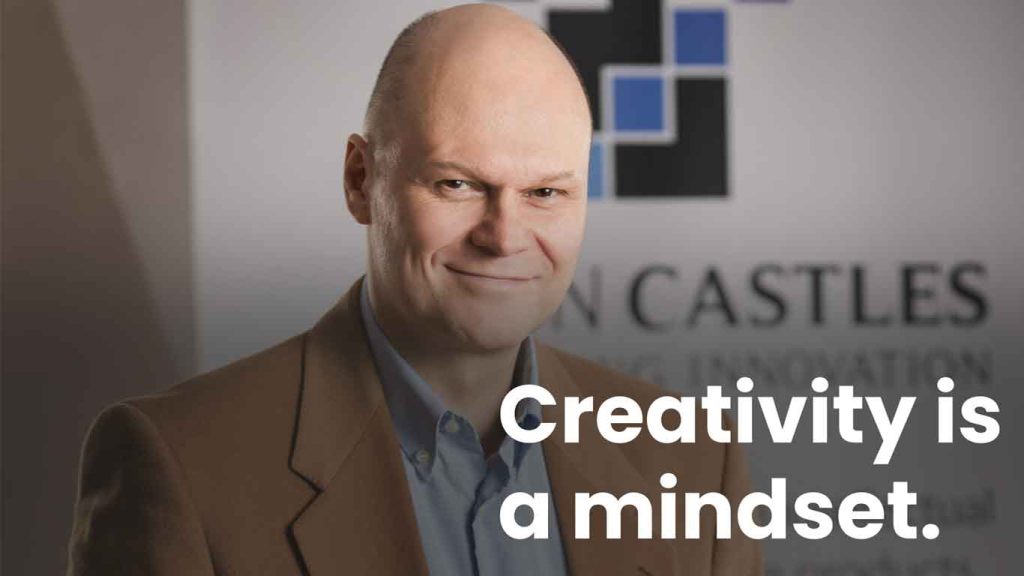Andreas Spechtler: Creativity is a mindset.
Learning is a lifelong process. This mantra encapsulates the essence of what makes or breaks a young business. After all, arrogance begets ignorance. The founder and CEO of Silicon Castles, Andreas Spechtler is a Sonophilian by heart and an advisor for startups by nature.
With 25 years of experience in the technology and licensing business, digital entertainment, and marketing and sales at such global corporations as Dolby, Sony, and Real Networks, he knows a thing or two about failure and success. Having founded his own startup back in 1999 in Munich, a wireless service provider for the logistics industry, and having crashed during the first dot-com bubble, he realized how valuable good advice would have been. Throughout his career, he spotted good ideas whenever they sprang up and learned how to implement them for the best results. This was his motivation for Silicon Castles, a strategic business accelerator for technology intellectual property licensing businesses.
“I have always had this entrepreneurial spirit in me,” Andreas told Sonophilia. “I founded Silicon Castles to support startups with great ideas in Europe or [anywhere] else – it could also be in the Middle East or Africa – to accelerate their idea with IP and hardcore tech… It’s about really groundbreaking technology.”
Silicon Castles focuses mainly on European Diamonds, which it defines as ‘technology startups with a unique business idea with scalable technology and outstanding intellectual property.’ Every week, Andreas speaks with several interesting startups that he believes have Diamond potential and is always eager to learn and understand who they are and what they’re thinking. He stresses how important it is that the core technology be a standalone product that solves problems rather than a feature to be improved. It also must be rooted in science and have a radically new thinking approach.
“This disruptiveness that we all talk about can be in the business model, or it can be in tech. I rather prefer to be disruptive in tech because it can be better protected. If you disrupt from the business side, anyone else can compete or copy you and just put money in there. That’s what big companies are really good at: replicating good ideas… If you start creating this innovation and IP or patents, it shouldn’t just be an incremental one. You should have a core patent that totally drives the scene.”
In this way, Andreas has been personally involved with some very notable projects. For example, he connected and invested with the CEO of a new emotional AI company called Musimap, which redefines personality profiles based on music and emotions with the help of super musicologists and AI experts. In another case, he helped establish the partnership between the sports tech leader Stats Perform and the streaming and synchronization solutions company NativeWaves to create a new personalized viewer experience for sports fans which gives users the chance to view multiple camera angles and a second screen experience of their favorite sports events.
In 2017 and within Silicon Castles, Andreas founded the Startup Executive Academy, an international go-to-market program designed to help early-stage technology startup executives and founders accelerate their businesses through practical input. The SEA was born to offer the proper strategies to understand value versus competition and is now entering its fifth year. It aims to provide startups with the tools to present, market, negotiate, and scale their product. Andreas underlined how undervalued the go-to-market aspect often is.
“In the end, once you have a product ready, it’s all about sales, sales, sales, sales, and sales, and that’s what matters and nothing else, because you can have the greatest product, but if nobody buys it, you will end up in bankruptcy. That’s where people need to improve drastically. Unfortunately, a lot of founders underestimate the go-to-market side very, very much.”
Much like Sonophilia, the SEA is ongoing. As part of the SEA Circle, former SEA participants are invited to continue to network, ask questions, and exchange answers long after the Academy has ended. As Andreas put it: “Learning is key. Never [say] ‘I know everything.’ It’s not true.” He highlighted the importance of training the SEA participants towards implementing creativity and injecting innovative thinking into their business ventures.
“Creativity is a mindset. If you don’t have the mindset [to be] creative, you will be left out. It is one of those mindsets that every good businessman has. Maybe it’s not about creativity – maybe it’s about innovation, so thinking differently, thinking into the future and solving problems. I think here what is really important is to free up the mind, because some people are stuck so much in their daily work, in their business, that they’re not able to really think freely.”
Questioning things and taking to heart new ways of doing is essential in implementing a creativity loop to any routine. Andreas, who authored a chapter in the Sonophilia Foundation’s book Creativity Matters, is adamant about the importance of being open to change and innovation, particularly in business.
“In tech business, creativity means imagination, how things could work in the future, thinking out of the box… Everything is good for breeding creativity, but you need to be ready for that. I think to be ready for creativity is the key to success.”




